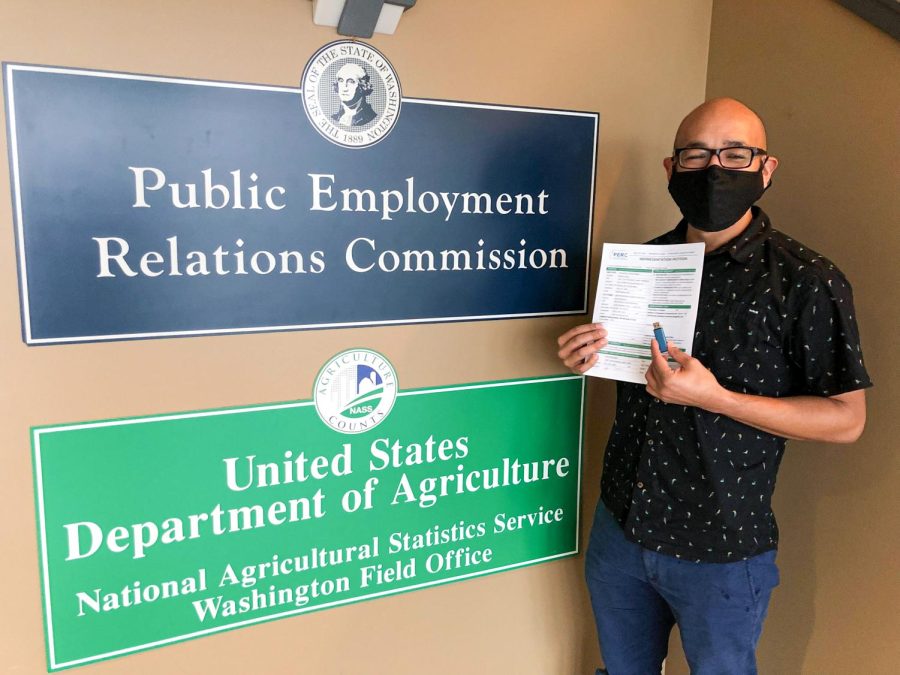University of Washington researchers to unionize for equity, better work conditions
Organizing committee filed petition; plans to work with other unionized workers on their campus
Courtesy of Cara Margherio
January 27, 2022
Across all University of Washington campuses, 1,500 researchers are filing a petition with the Public Employment Relations Commission in order to become unionized.
The purpose of organizing a union is to improve the working conditions on campus by making workspaces more equitable and inclusive, said Cara Margherio, organizing committee member and research scientist in the Center for Evaluations & Research for STEM Equity at UW.
“We know what a positive experience this can be in terms of improving our job security and in having an ability to make our working conditions better,” Margherio said. “That’s really the main thrust of why we want to do this.”
Examples of better working conditions include more gender-appropriate bathrooms and addressing microaggressions occurring on the campus, said Iván Cruz, research scientist and organizing committee member at UW.
Forming a union also allows for mental and financial stability for workers, which is important for areas like Seattle where living expenses are high, Cruz said.
For example, researchers usually receive a 2% increase in their salary every year, but it was taken away last year because of the pandemic. While the university recently gave it back, a legally binding contract would have prevented them from taking it to begin with, he said.
According to a salary study by the university administration, research staff is paid an average of 22% below market rates, Margherio said. They are the most underpaid in comparison to the other groups surveyed.
Cruz said networking and reaching out through emails and phone calls were key in rounding up researchers, despite communication being difficult during the pandemic. However, the outreach achieved even with working remotely reflects the urgency of forming the union.
“We’ve been able to help folks who have been in pretty bad situations at times,” Margherio said. “When folks come, and I’m having a conversation with them, and they tell [me] about discrimination and harassment, I can help walk them through the bureaucracy that is UW to figure out where to go for support.”
One more goal of forming the union is to improve communication, she said. Research scientists are often isolated in their labs and do not know where to turn for support when they have problems.
“That’s another way that the union can serve as a resource,” she said.
The committee filed its petition with the Public Employment Relations Commission on Dec. 20, 2021. Once they verify the committee has 50% plus one of those scientists who signed the authorization card, the researchers will be certified as a union, Cruz said.
The committee is also joining with UAW Local 4121, which already represents some of the employees on campus. By working in conjunction with them and other unionized workers, this committee will help push positive changes to improve working conditions for everyone, Margherio said.
“We’re really excited,” Cruz said. “There’s a lot of enthusiasm around campus, and people are really geared up for getting these rights and protections enacted.”











